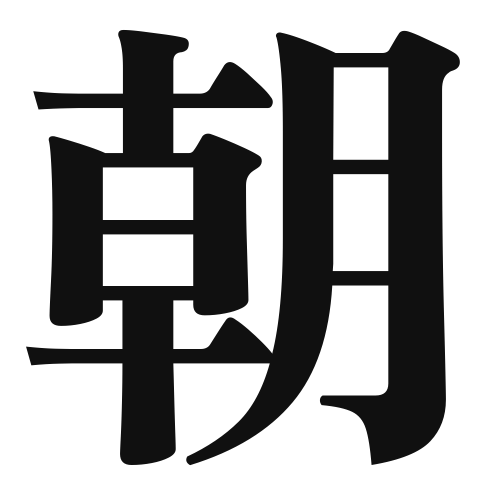1. Overview of Meaning
The kanji “朝” (asa) means “morning.” It represents the time of day when the sun rises and is often associated with new beginnings and freshness.
2. Formation and Radicals
The kanji “朝” is a compound character that combines elements to convey its meaning. It consists of the radical 日 (sun) and the phonetic component 兆 (which can mean “to indicate” or “to show”). This combination reflects the idea of the sun rising in the morning.
The radical 日 is commonly associated with light, sun, and day, reinforcing the connection to the morning time.
3. Examples of Usage
Common words and phrases that include “朝” are:
- 朝ごはん (asagohan) – breakfast
- 朝日 (asahi) – morning sun
- 朝寝坊 (asanebou) – oversleeping in the morning
Example sentence in daily conversation:
今日は朝早く起きました。 (Kyou wa asa hayaku okimashita.) – “I woke up early this morning.”
4. Synonyms and Antonyms
Similar kanji with related meanings include:
- 昼 (hiru) – noon, which refers to the time of day after morning.
- 夕 (yuu) – evening, which indicates the time of day after afternoon.
Antonyms include:
- 夜 (yoru) – night, which represents the time of day after sunset.
5. Cultural and Historical Background
The concept of “朝” is deeply rooted in Japanese culture, symbolizing new beginnings and the start of daily activities. In traditional Japanese culture, the morning is often seen as a time for reflection and preparation for the day ahead.
Proverbs and idioms related to “朝” include:
- 朝起きは三文の徳 (Asaoki wa sanmon no toku) – “Waking up early brings benefits,” emphasizing the value of starting the day early.
